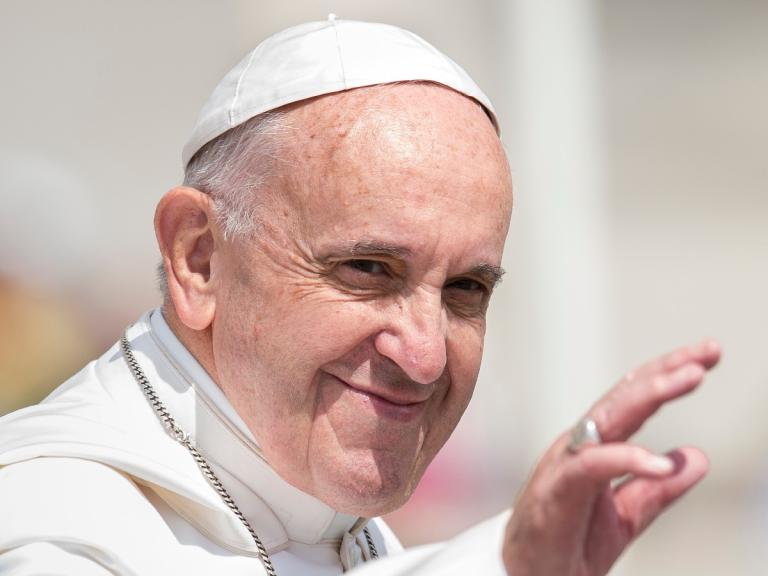
Pope Francis recently marked the 10th anniversary as head of the Roman Catholic Church, celebrating Mass with cardinals in the chapel of the Vatican’s Santa Marta hotel, where he’s lived since his election. The 86-year-old Argentina-born Francis became the first Latin American pontiff in 2013, succeeding Benedict XVI, the first pope in six centuries to resign.
In a Vatican News podcast, he said, “It seems like yesterday. Times flies. When you gather up today, it is already tomorrow.” When the podcast was recorded at his residence, the pontiff didn’t know what a podcast was, according to Vatican News reporter Salvatore Cernuzio. When Cernuzio explained what it was, he said, “Nice. Let’s do it.”
A stubborn knee condition has forced Francis to alternate between a cane and a wheelchair. Still, he appears to be in good overall health. “You don’t run the Church with a knee but with a head,” he reportedly told an aide after he began occasionally using a wheelchair in public for the first time last May.
Francis said he would step down if severe health issues barred him from running the 1.38 billion-member church. However, he does believe that popes should try to resign for life and that being emeritus pope, as Benedict was, shouldn’t become a trend. Benedict resigned for health reasons but lived close to 10 more years. With 10 years under his belt as pontiff, Francis has reigned longer than the 7.5 years average length of the last 265 pontificates. He’s visited 60 states and territories, nearly 255,000 miles.
However, he hasn’t returned to his native country, Argentina, which has caused much speculation. He was named about 64 percent of the so-called cardinal electors under 80 and thus eligible to enter a conclave to elect his successor after he resigns or dies. Francis also celebrates the anniversary of outlasting conservative opposition within the church that has demanded his resignation several times and now seeks a new direction after the deaths of two leading figures.
Francis’ insistence that long-marginalized LGBTQ Catholics can find a welcome home in the church can be summed up by two pronouncements that have book-ended his papacy to date: “Who am I to judge?” and “Being homosexual is not a crime.” Between those historical statements, Francis made outreach to LGBTQ people a hallmark of his papacy more than any pope before him.
He ministers to members of a transgender community in Rome. He has counseled gay couples seeking to raise their children Catholic. During a 2015 visit to the U.S., he publicized a private meeting with a gay former student and the man’s partner to counter the conservative narrative that he had received an anti-same-sex marriage activist.
“The pope is reminding the church that the way people treat one another in the social world is of much greater moral importance than what people may possibly do in the privacy of a bedroom,” said Francis DeBernardo of New Ways Ministry, which advocates for greater acceptance of LGBTQ Catholics.
Historians believe St. Peter, the apostle, held the longest papacy as the first pope, estimated to have lasted almost 35 years.


